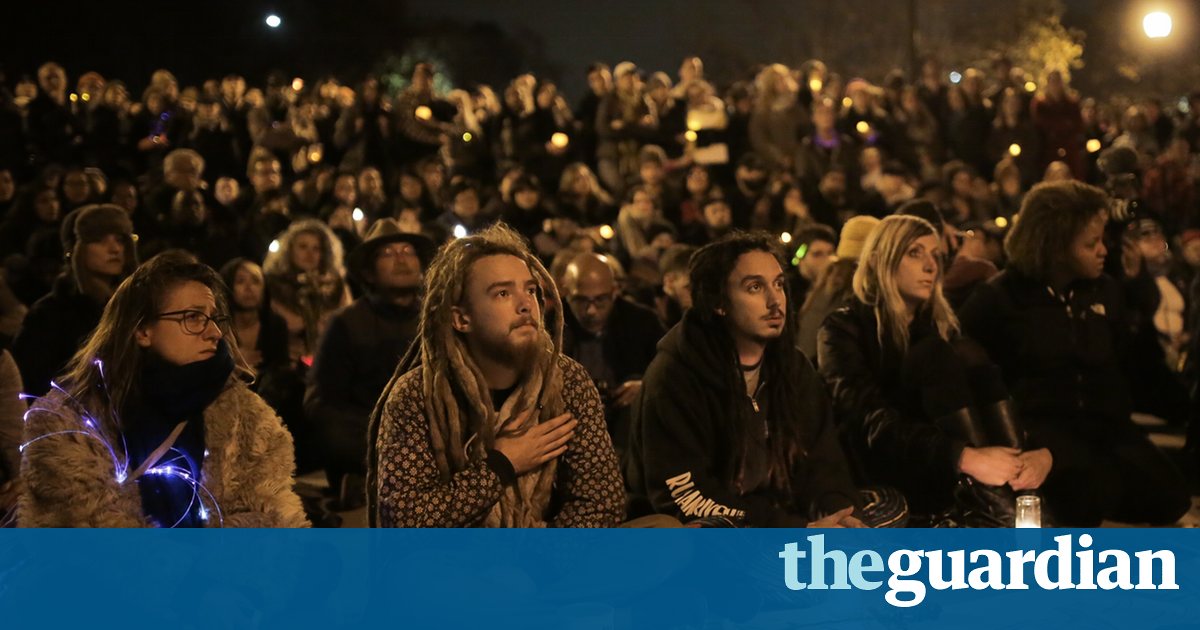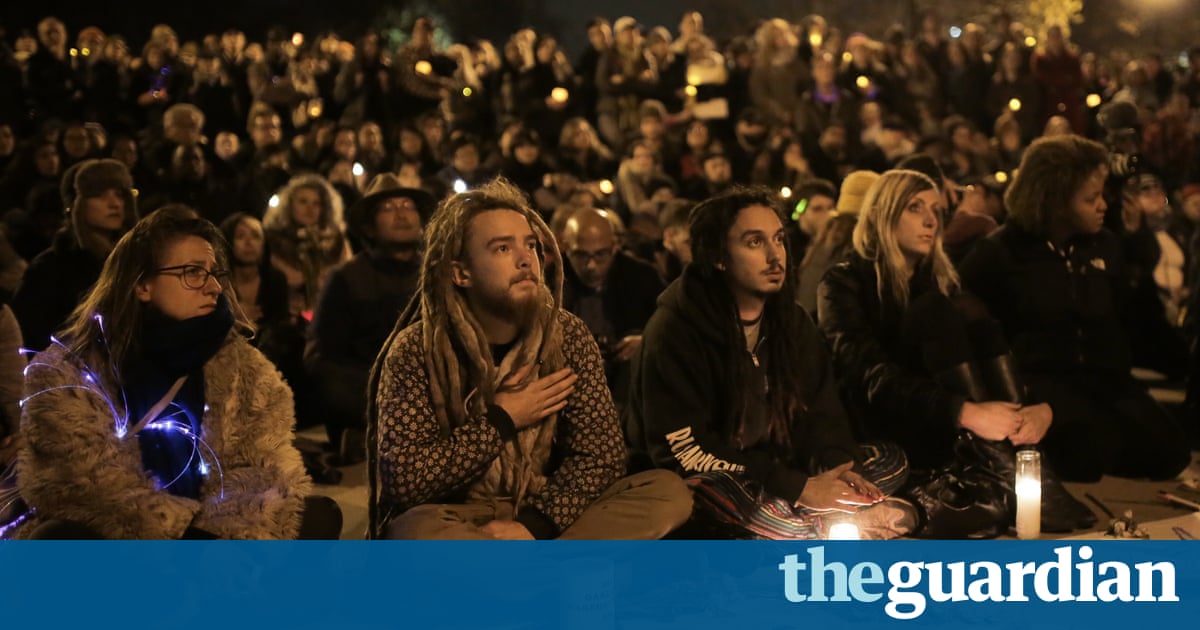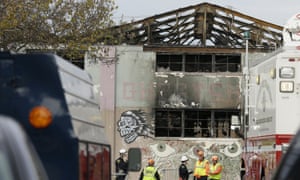Oakland’s warehouses are a vibrant refuge. Don’t take them away from us

As a tenant in a space being targeted after the Ghost Ship fire, I am seeing first hand the wrong-headed panic and finger pointing now gripping the city

On Friday, at least 36 people died when an east Oakland warehouse known as Ghost Ship caught fire during a night intended for music and joyous expression. As a journalist in the days immediately following the tragedy I have been reporting the perspectives from experts and survivors.
Underlying the tragedy is a secretive culture of art and music forced into increasingly vulnerable circumstance as housing costs soar. For years, non-conforming bodies and those outside the mainstream have found refuge and possibility in derelict buildings throughout Oakland. Integral community members were lost in the fire, and many of them were dear friends and inspired artists with radically inclusive visions of a music and arts scene. But now, as a tenant in a multi-use space that is being targeted after the Ghost Ship fire, Im seeing the wrong-headed backlash first hand.
On Tuesday, the owner of a prominent barbecue restaurant near the arts-studios known as Salt Lick where I write, make fanzines, and sometimes rehearse with my band announced a press conference to decry what she described as another deathtrap venue next-door. Salt Lick tenants were stunned. We hadnt heard from her prior. The city has recorded no formal complaint at our address. I left a voicemail requesting a meeting, but she didnt respond. Her comments to reporters about Salt Licks fire-safety precautions were misinformed, reflective of the finger-pointing and panic now gripping the city.
After an emotional press conference, Salt Lick artists issued a statement noting that her behavior typifies what many journalists and observers have called the wrong response to this tragedy, an example of what will only further marginalize the people who gravitate towards spaces such as Ghost Ship because of economic and cultural forces. The confrontation, however, ultimately brought us together as neighbors to share resources and discuss the challenges now facing similar spaces throughout Oakland.
Unsanctioned art spaces provide some of the last vestiges of affordability and solidarity in a city now marketed and priced as a bedroom community to Silicon Valley. Their inhabitants also embrace these sometimes rickety and unequipped places, as the evicted tenants of LoBot Gallery in Oakland wrote in an open letter, because they often have safe-space practices intentions to be anti-oppressive, accessible, inclusive, and protective of those with marginalized identities.

As one former LoBot resident told me, the other option for a lot of us who live in warehouses here is living in the streets. Calls to crackdown on unsanctioned Oakland art spaces thunder from the mouths of public servants who rightly observe that many places arent up to code. This partly has to do with absentee property-owners who feign ignorance. Its a tacit pact: landlord neglect and they can justify modest rent, or, as LoBot put it, disinvestment for stability. In rare situations, this contributes to the hazardous irresponsibility that led to the events of last Friday. Danger like that demands immediate remedy.
But as illustrated by the recent story of 1919 Market Street where dozens of artists and families were ousted so the space could be turned into dorm-style housing for millennials officials ostensible interest in tenant wellbeing often veils predatory market machinations and leads directly to displacement.
Thats why artists have been organizing covertly: fundraising for peers whose spaces do direly need improvements,; networking among sympathetic craftspeople, delivering fire extinguishers and smoke detectors directly to rollup doors, press-free informational assemblies for those impacted, and, perhaps most urgently, furnishing resources to tenants already facing intimidation and eviction as a result of the witch-hunt. The charming punk house, an occasional venue and haven for the housing insecure, where I wept with friends on Saturday night received a 60-day notice on Tuesday.
So until local leaders define a pathway for liminal spaces towards civic oversight that isnt a pretext for expulsion, denizens of old warehouses, foundries, creameries, and churches will likely rely on the clandestine communities where they first feel safe.